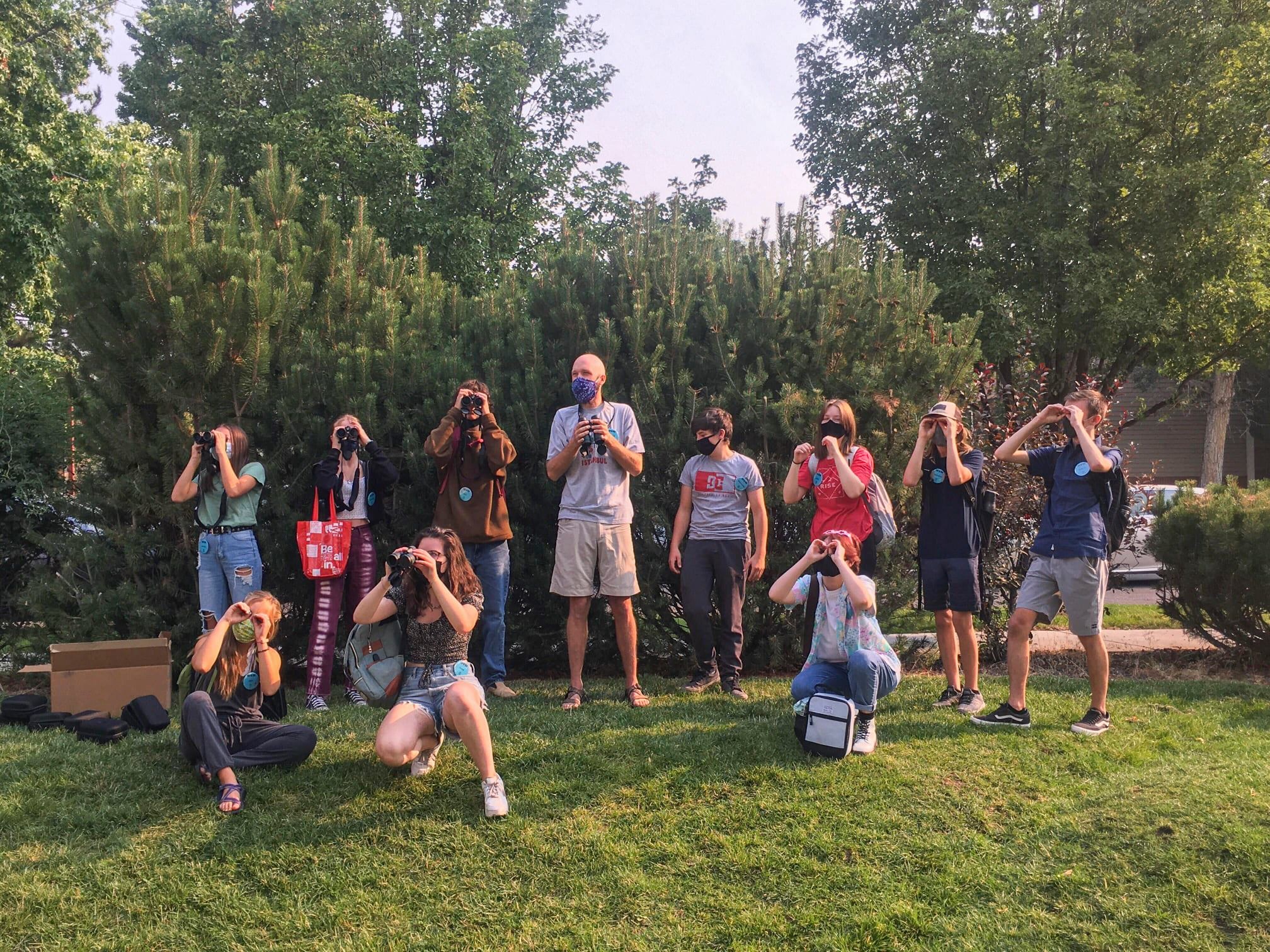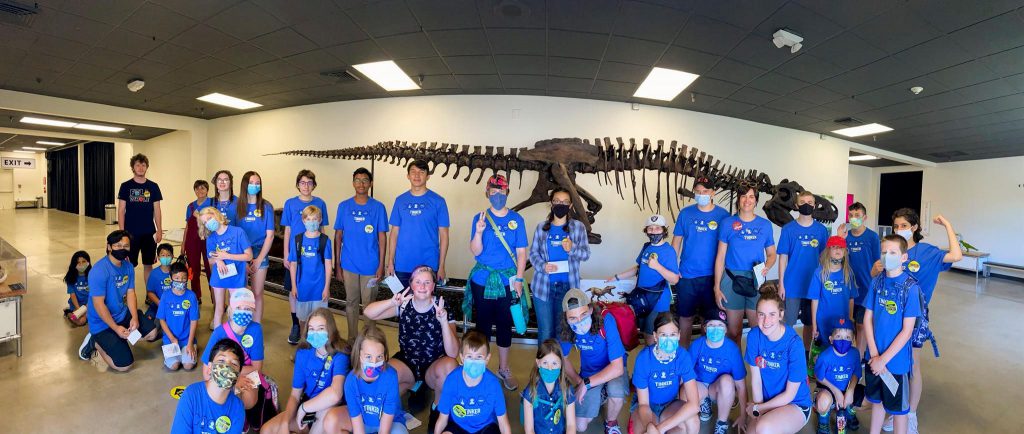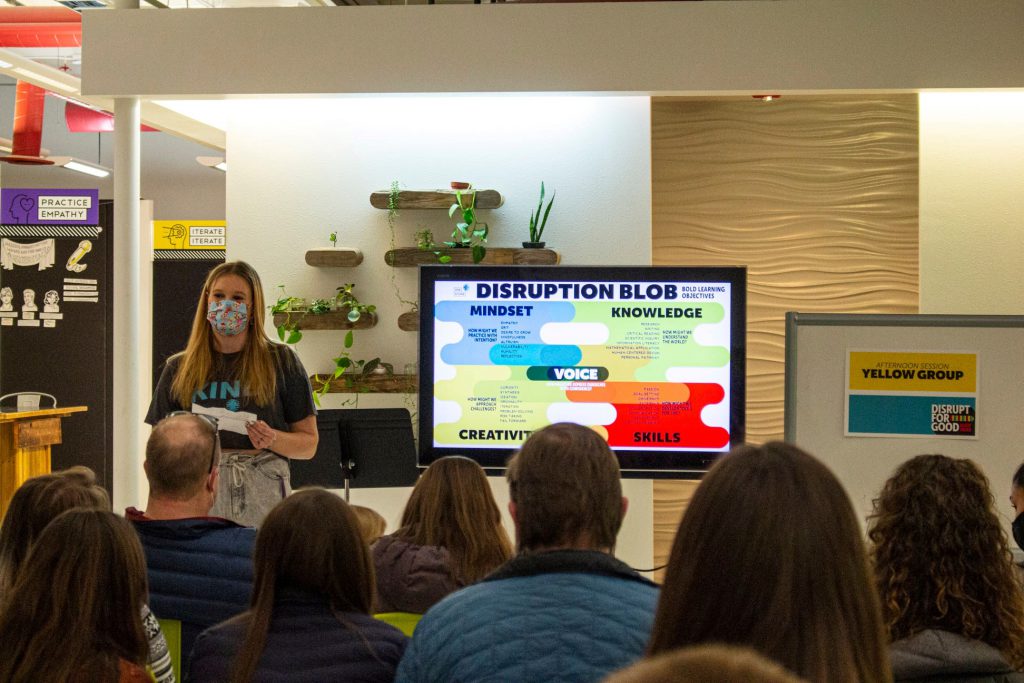
One Stone: Created by Students for Students
One Stone stands out from the crowd because its youthful participants choose to learn, delve, and grow. How does that set One Stone apart? Too many students go through the motions of going to school each day, because their attendance is mandatory. Typically, students have no real choice but to slog through the days and years of school until graduation. One Stone participants, on the other hand, are excited to discover and nurture their strengths and talents.
We like programs that get kids excited about stretching their minds. That’s the reason we chose to give One Stone a boost by way of our small grant program. What’s One Stone’s magic formula? We sent some questions along to the people at One Stone. In a lovely twist from our usual manner of gathering intel from administrators, One Stone asked Meghan Fall, a current Y-Lab student at Lab51 and the Chair of the One Stone Board of Directors, to respond:
Kars4Kids: One Stone didn’t set out to be school, but in addition to your programs serving various high schools, you now also have a school, Lab51. Can you tell us why the school was founded? How many students attend your school?
Meghan Fall: Lab51 was founded because students were passionate about creating their own learning experiences. We like to say we were created by students for students. The success of Project Good demonstrated a need in our community for a high school experience that is rooted in service, design thinking, and discovering what our true passions are.

Kars4Kids: Lab51 appears to be divided into three sections or parts: XLab, DLab, and YLab. Can you tell us a bit about each of these?
Meghan Fall: XLab is for our 9th-grade equivalent students. XLab is meant to help students X(plore) their passions and engage with the design thinking process.
DLabs 1 and 2 are for 10th grade and 11-grade equivalent students, respectively. DLab is short for (D)esign Lab where students dig deeper into the design thinking process and work in cohorts to create solutions for specific problems in our community.
Y(Lab) is the graduating class and is meant to help this cohort discover their (why) in life and how they can take this self-discovery and continue to do good in the world after One Stone.
Kars4Kids: Idea51 offers a program called Living in Beta. Can you give us an overview of this program?
Meghan Fall: Living in Beta is a cyclical process defined by moments of growth, iteration, pivoting, and realizing our ever-changing passions and sense of purpose. There are four key parts of the Living in Beta process: exploration, discovery, purpose, and self-actualization.
Exploration is when students take the time to identify and explore their passions, interests, curiosities, and skills. The goal of this stage is for students to develop a better understanding of how to leverage their unique strengths and talents to realize their potential and engage their passions to the fullest extent.
During the Discovery phase, learners find themes within their passions and make key insights about themselves and what fulfills them. The purpose of this stage is to discover the driving force of their passions while learning what motivates them most in life as well as uncover their values and what is most important for them in life.
The third phase is Purpose, where learners have ample opportunity to explore their passions through meaningful and relevant experiences. With these experiences in hand, learners are now able to articulate their purpose in a powerful “WHY” statement and connect their WHY with their personal and professional values.
Self-Actualization is the final stage in Living in Beta. Learners leaving this stage have a tool kit for life, filled with the skills that afford them the mindset and experiences that will empower them to continually iterate upon who they are and who they want to be.
Kars4Kids: You operate several different studios. Can you give us a brief description of each?
Meghan Fall: Yes! One Stone has a total of eight studios + labs. Seven of our studios + labs are after school and open to any students at no cost who want to participate. In addition to Lab51, our high school experience, we have an experiential service program; a music and recording studio; a coding and cyber lab; an idea lab for student-led ventures, businesses, and products; a multi-disciplinary and multimedia art studio; a maker studio; and revenue-generating creative marketing agency. Each of these studios and labs was developed and is currently driven by student leadership, in response to students’ significant and growing interest in developing various skill sets, competencies, and passions.
In order to attend Lab51, our high school experience, students must go through an application process (directed and run by students). Anyone can apply to Lab51.

Kars4Kids: Talk to us about “BLOB.”
Meghan Fall: One Stone’s Bold Learning Objectives, or BLOB, focuses on four key areas of learning: mindset, creativity, skills, and knowledge. Under each area are eight different learning objectives, totaling 32 different tools students walk away with after their experience at Lab51. The purpose of the BLOB is to allow students to be assessed holistically, rather than through grades and scores on a test. We focus on 21st-century skills such as grit, ideation, and goal setting so that when students continue on their journey after high school, they are able to better integrate into the real world.
Kars4Kids: How did the pandemic affect One Stone’s operation?
Meghan Fall: Our commitment to doing the right thing, even when it is hard, did not waiver. In the fall of 2020, we learned that our community’s Boys and Girls Club was filling the childcare gap for working families in the crush of COVID-19. In collaboration with our local District Health office and after speaking with club leadership, we developed a safety-conscious, socially-distanced plan to directly aid club staff and members, in the ways they said would be most helpful. In just the first six weeks of this partnership, 120 Project Good participants tutored 55 elementary school-aged club members and supported the club’s 8-floor staff members for the K-1st and 2nd-3rd grade cohorts with over 167 hours of one-on-one attention and engagement.
Kars4Kids: What’s next for One Stone?
Meghan Fall: We are partnering with Title I schools and organizations in rural communities to offer our transformational programs to more students. We will continue to innovate and iterate upon our current programming and continue to do as much good as possible!